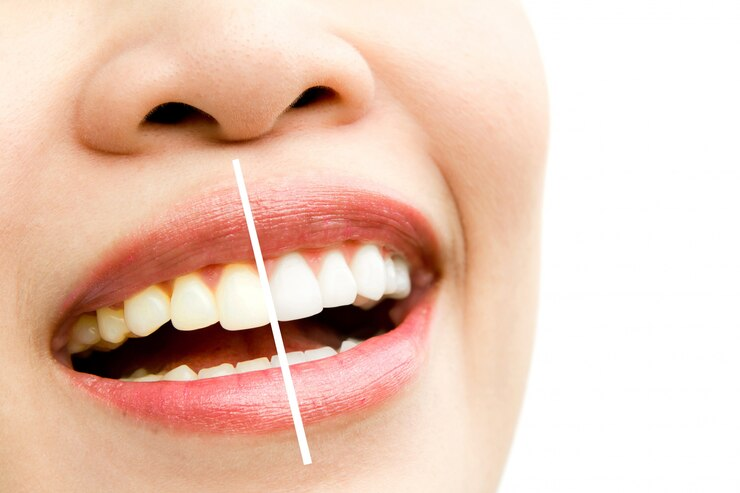What Causes Premature Ejaculation Issues?
Premature ejaculation is a common sexual health concern that affects men of various age groups worldwide. It is characterized by an inability to control ejaculation for a sufficient duration during sexual activity, often leading to dissatisfaction for both partners. While the exact cause can vary from person to person, it is essential to understand the underlying factors contributing to this condition. For individuals seeking expert advice, addressing Premature Ejaculation in Dubai is becoming a priority for comprehensive treatment solutions guided by professional insights.
Understanding Premature Ejaculation
Premature ejaculation is often rooted in both psychological and physiological factors. The condition can stem from anxiety, performance stress, or negative past sexual experiences, making it a multifaceted issue. Physiologically, hormonal imbalances, heightened sensitivity, or certain neurological conditions may also play a significant role. Recognizing these causes is the first step towards effective management.
Psychological Factors Behind Premature Ejaculation
Mental health plays a crucial role in sexual performance. Stress, depression, or anxiety can create a negative feedback loop that exacerbates premature ejaculation. Men dealing with relationship conflicts or low self-esteem may also be more prone to experiencing this condition. Cognitive therapies and counseling often help identify and address these triggers effectively.
Role of Hormonal Imbalances
Hormones regulate many functions in the body, including sexual health. Imbalances in testosterone or other hormonal irregularities can contribute to premature ejaculation. Professional evaluation through comprehensive tests can help diagnose these issues, allowing healthcare providers to create tailored treatment strategies.
Impact of Neurological Sensitivities
Certain neurological conditions, such as overactive nerve responses, can lead to heightened sensitivity in the genital area, which might result in premature ejaculation. Understanding this connection helps professionals recommend suitable approaches, such as behavioral techniques or physical therapies, to alleviate the condition.
How Doctors Diagnose Premature Ejaculation
Doctors use a combination of patient history, physical exams, and psychological assessments to diagnose premature ejaculation accurately. Through open communication, healthcare providers evaluate the frequency, severity, and possible causes of the condition. Diagnostic tools may include:
- Detailed patient interviews to identify patterns or triggers.
- Hormonal testing to rule out imbalances.
- Neurological exams to understand physical sensitivities.
Treatment Approaches Explained
Medical professionals employ a variety of strategies to address premature ejaculation, each tailored to the patient's specific needs. The following approaches are commonly used:
Behavioral Therapies
Doctors may recommend certain exercises, such as the "stop-start" or "squeeze" techniques, which help patients develop better control over ejaculation timing. These therapies are designed to train the mind and body to respond differently during intimacy.
Psychological Counseling
When psychological factors like anxiety or relationship issues contribute to premature ejaculation, therapy sessions with a trained counselor can be invaluable. Cognitive-behavioral therapy (CBT) is particularly effective in changing negative thought patterns and building confidence.
Physical Therapies
In some cases, physical therapy focusing on pelvic floor strengthening can improve control. Doctors might suggest specific exercises aimed at enhancing muscular strength and endurance in the pelvic region.
The Importance of Open Communication
A vital component of managing premature ejaculation is establishing open communication between the patient and the healthcare provider. Discussing concerns without hesitation allows doctors to create personalized treatment plans, ensuring that all contributing factors are adequately addressed.
FAQs
What are the primary causes of premature ejaculation?
Premature ejaculation can be caused by psychological factors like stress and anxiety, physiological issues such as hormonal imbalances, or heightened neurological sensitivity.
How do doctors determine the cause of premature ejaculation?
Doctors evaluate patient history, perform physical exams, and may conduct hormonal or neurological tests to identify the underlying causes.
Is premature ejaculation a lifelong condition?
Not necessarily. Many cases of premature ejaculation are treatable through behavioral, psychological, or physical therapies under professional guidance.
Can lifestyle changes help with premature ejaculation?
Yes, adopting a healthier lifestyle, including regular exercise and stress management, can complement medical treatments and improve overall sexual health.
What role does counseling play in treating premature ejaculation?
Counseling helps address psychological factors such as anxiety or relationship issues, providing coping strategies and fostering improved sexual confidence.
Conclusion
Understanding the causes of premature ejaculation is the first step toward effective management. With the guidance of professional medical experts, individuals can explore tailored treatment options that address both physical and psychological aspects of the condition. Whether through behavioral therapies, counseling, or physical treatments, addressing premature ejaculation in Dubai offers a pathway to improved sexual health and confidence.




Comments
Post a Comment